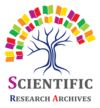Health impact linked to the use of water of questionable microbiological quality in the town of Nkolafamba (Center, Cameroon)
1 Laboratory of Hydobiology and Environment, Department of Animal Biology and Physiology, Faculty of Sciences, University of Yaounde 1, PO Box 812.
2 Department of Animal Biology and Physiology, University of Douala, Faculty of Sciences, PO Box 24157, Douala, Cameroon.
3 Laboratory of microbiology, Department of microbiology, Faculty of Sciences, University of Bamenda.
Research Article
International Journal of Biological and Pharmaceutical Sciences Archive, 2021, 02(02), 043–051.
Article DOI: 10.53771/ijbpsa.2021.2.2.0095
Publication history:
Received on 01 October 2021; revised on 07 November 2021; accepted on 09 November 2021
Abstract:
A study was carried out in order to assess the health impact linked to the untreated use of water from the watercourse in the town of Nkolamfamba by the neighboring populations. The surveys were conducted on the entire population taking into account the status of the respondent, his responsibility in the family, his level of education. In a questionnaire, after identifying the respondents, the points considered were knowledge of the management of solid and liquid household waste, the supply of drinking water, the health and environmental impact linked to the use of untreated water. The results of the surveys were codified and processed by statistical analyzes using SPSS version 16 software. 0 in order to establish the links between the health risks recorded and the microbiological quality of the water used. It shows positive and very significant correlations (P <0.01) between the type of activity carried out and the treatment of water before consumption, between the source of supply and the treatment with bleach, between monthly income and water supply, between the interviewee's neighborhood and the water treatment before consumption. Positive and significant correlations (P <0.05) were observed between the source of water supply and water-borne diseases, the source of water supply and knowledge of water quality, water-borne diseases and water treatment before consumption. However, a significant but negative correlation was observed between monthly income and bleach treatment. The populations of the locality of Nkolafamba should be sensitized on water treatment techniques.
Keywords:
Health impact; Microbiologcal quality; Water; Watercourses
Full text article in PDF:
Copyright information:
Copyright © 2021 Author(s) retain the copyright of this article. This article is published under the terms of the Creative Commons Attribution Liscense 4.0
